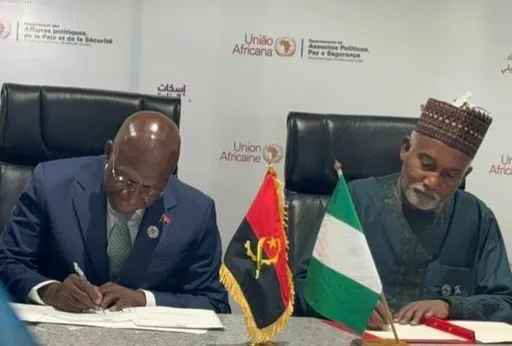By Seddiq Abou El Hassan
It could have been a perfect, unsolvable crime. The victims were incapable of intelligible speech, let alone record the abominable deed in any form of writing.
This is at least how it was thought out by the perpetrators who did not see any inconvenience in carrying away human power to where it was mostly needed, as you would some raw material.
Dehumanising a community is the easiest way to cover up ill-treatment, and the denial of its cultural characteristics is one way to do it. But it was reckoning without the sophistication of the West-African societies of the time and their scholarly elite.
The counter-examples are many, but the following two are the most striking.
A hafiz in a tobacco plantation
Ayyuba Suleiman Diallo is a study case of colonialism blindness to the social structure of the indigenous people.
Only a merchant who sees amorphous material where there is great complexity would abduct a highly educated man like Ayyuba Suleiman only to sell him to a slave plantation in America for field work.
Born into a wealthy clan of the Fula ethnic group, from the Senegambia region, his father was an Islamic scholar of repute who tutored him alongside the notables’ children.
He completely memorised the Quran (thus achieving the status of Hafiz) and, eventually, started assisting his father as he displayed his remarkable skills.
In 1731, Diallo (Job Ben Solomon in European sources) was kidnapped and shipped across the Atlantic to a main port of the slave trade in Annapolis, Maryland.
Raised to pursue a scholar career, nothing prepared him in his early life in Bondu to bear the hardship and intense labour that would be his living conditions from that point on.
Throughout his enslavement, Diallo sought solace in faith. He never gave up his Islamic rituals and practices, including prayer, despised being sometimes mocked or mistreated.
He eventually outwitted his enslavers and managed to escape only to be captured and jailed.
This setback exposed his case to an English lawyer who took interest in this unusual character.
Thomas Bluett made Diallo’s acquaintance during his imprisonment and engaged with him in detailed discussions through a translator.
Diallo’s contemporaries agree that his knowledge and spirituality earned him special treatment and led, ultimately, to his freedom. But the narratives diverge as to the part played by Bluett.
A somewhat fantastic tale credits the English minister for rallying a network of administrators in order to reconnect the notable slave with his family.
“Bluett attempted to get a letter from colonial Maryland to Bondu, a letter Suleiman Diallo wrote in Arabic to his father asking for assistance to return home. After changing hands among British officials several times and still failing to move across the Atlantic, the letter finally found itself in the hand of James Oglethorpe, the British aristocrat who founded the Georgia colony in 1732.”
But there’s a more pecuniary rather than spiritual version. Oglethorpe, who had a stake in the Royal African Company, attempted to capitalise on Diallo’s social status among his people to win privileged access to Senegambia’s resources.
What the indomitable capitalist failed to foresee is that Diallo’s upbringing within a religious elite prepared him for theological debates, but not for negotiating deals.
If he failed miserably as a trade agent, his scholarly aptitude didn’t go unnoticed during the crossing to London and throughout his stay in England.
Those around him were particularly impressed with his clear-mindedness unaffected by years of hardship.
Bluett, a keen observer of Diallo’s behaviour, asserted in 1734 that he wrote from memory three identical copies of the Qur’an “without the assistance of any other copy, and without so much as looking to one of those three when he wrote the others.”
But above all it was his strict commitment to Islamic practices, in spite of everything, that intrigued the most.
In different narratives, Suleiman continued to perform the five prescribed prayers, refused wine and would only consume meat if conform to ritual norms.
Many years later, he was eventually allowed to return back to his homeland and deeply changed social conditions.
From here on, his biographers would go wild with dramatic epilogues, in line with the 18th century romantic tradition.
By some accounts, upon his arrival to Bondu, he found that his father had died and his wife remarried.
He apparently maintained regular correspondence with some acquaintances in England, informing them about his situation and requesting their help to return back to London. But how much credit should be given to these anecdotes.
Sheikh Omar… the Presbyterian
One century later, in a deeply divided United States over slavery and on the brink of a devastating civil war, another offspring of the West African ruling class would experience the same fate, with a different conclusion.
Everything predisposed young Omar Ibn Said to a comfortable scholarly career in his native Futa Toro (present-day Senegal).
But those were perilous times to be West-African. Around 1807, he was kidnapped and sold to a cruel slaveholder in Charleston, South Carolina. After a failed escape, he was jailed in harsh conditions as a runaway slave.
His extraordinary story would have remained untold, if it hadn’t been for his persistence in leaving a paper trail of the crime to which he fell victim.
On the walls of his cell in Fayetteville, he started scribbling fragments from his previous life, relying only on his memory.
Whole passages from the Qur’an at first, then verses mixed with prayers and desperate attempts to describe his misfortune, increasingly losing consistence.
The fifteen pages he penned in a neat maghribi script, following the West-African Mahdara seminaries’ method, are considered “the only Arabic slave narrative written in the United States known to exist today”, confirms the Lowcountry Digital History Initiative.
By the mere fact that the slaveholders in this case could not read Arabic, the document escaped censorship and conveyed to posterity a rare unedited account of an enslaved African, explained Mary-Jane Deeb, the head of the African and Middle-Eastern section of the Library of Congress.
Despite his fading memory and signs of bewilderment, the script is sufficient evidence to wipe out any pretence that the triangular trade was pulling from inexhaustible reservoirs of “illiterate, uncivilised labour force” with no perspectives otherwise.
The precious document titled The Life of Omar Ibn Said is now conserved at trhe Library of Congress.
It was the famed abolitionist Theodore Dwight who undertook the tedious task of compiling the collection in the 1860s.
Meanwhile, it changed hands many times and disappeared for decades then found, partially deteriorated.
The digitised records eventually show that Omar’s life conditions changed for the better when he was purchased by a powerful family in North Carolina, who were keen to make a good Christian out of him.
Although the Owens were satisfied with the Muslim cleric accepting Christ, it appeared that he kept including his bible excerpts from Qur’an and references from his original faith.
He might have developed a syncretic attitude given his exceptional life, or could have been just pretending to mollify his masters.
After more than 50 years as a slave, Omar died in 1864, one year before the United States abolished slavery. What would have he become if he hadn’t been kidnapped that fateful day in 1807?























